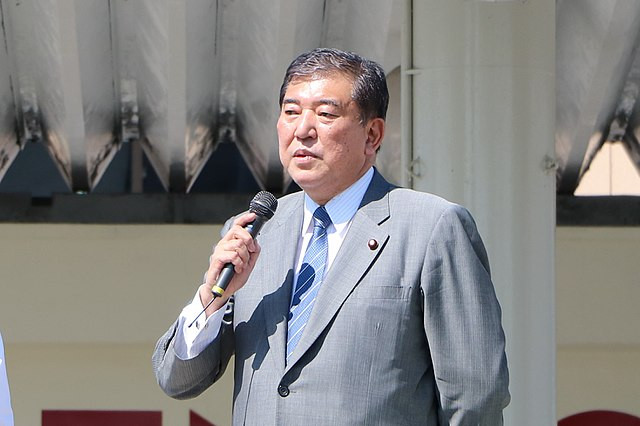Japanese Prime Minister Shigeru Ishiba arrived in Washington on Thursday for a closely watched meeting with President Donald Trump, as Japan seeks to reaffirm its alliance with the U.S. amid shifting geopolitical and economic dynamics in Asia. The visit marks the second foreign leader meeting of Trump's new term, following Israeli Prime Minister Benjamin Netanyahu's visit earlier this week.
Ishiba, who took office in October, is working to establish a personal relationship with Trump while navigating concerns over trade, security, and the future of the U.S.-Japan alliance. His trip comes at a time of uncertainty in the region, with South Korea facing political turmoil and China continuing its military and economic assertiveness. "It will be our first face-to-face talks, so I would like to focus on building a personal relationship of trust between the two of us," Ishiba told reporters before departing for Washington.
The meeting carries significant weight as Trump has previously expressed skepticism about U.S. alliances in Asia. During his first term, he criticized Japan and South Korea for "freeloading" on U.S. military protection and suggested that both countries should take on greater financial burdens. Ishiba is expected to emphasize Japan's role as the largest foreign investor in the U.S., a position reinforced by SoftBank CEO Masayoshi Son's pledge to invest $100 billion in American technology and infrastructure over the next four years.
Trade tensions are also likely to be on the agenda. The recent U.S. decision to block Nippon Steel's $14.1 billion acquisition of Pittsburgh-based U.S. Steel has complicated economic relations between the two countries. While Ishiba has not indicated that he will raise the issue directly, Nippon Steel executives are closely watching the outcome of the talks. Vice chairman of Nippon Steel Takahiro Mori said he hoped it would be "a catalyst that would open the way towards the future".
Despite the trade friction, security cooperation remains a cornerstone of the U.S.-Japan relationship. Japan has pledged to increase its defense spending to 2% of GDP by 2027, aligning with NATO benchmarks. However, Trump has pressed allies to raise defense spending to 5% of GDP, a threshold that would be difficult for Japan to meet. Ishiba is expected to highlight Japan's substantial purchases of U.S. military equipment, including fighter jets and missile defense systems, to reinforce Japan's contributions to regional security.
Meanwhile, South Korea's political crisis has created additional uncertainty in the region. President Yoon Suk Yeol faces an impeachment trial following his failed attempt to declare martial law in December, leaving Seoul without a clear leader for months. Trump has yet to engage with acting South Korean President Choi Sang-mok, raising concerns in Seoul that the country is falling behind in diplomacy with Washington. "Waiting six months to have that kind of highest-level meeting will definitely hurt the country," said Jennifer Lee, a Korea expert at the Asia Group.
Ishiba's visit also underscores Japan's interest in deepening AI cooperation with the U.S. Earlier this week, he met with OpenAI CEO Sam Altman and SoftBank's Son to discuss artificial intelligence investments. Trump previously hosted both executives at the White House, highlighting a $500 billion investment initiative in AI-related infrastructure. Ishiba reportedly told Altman and Son that he wants Japan and the U.S. to collaborate on AI development for "a more peaceful and safer world."
During his time in Washington, Ishiba has sought guidance from his predecessor, Fumio Kishida, and met with the widow of former Prime Minister Shinzo Abe, who was assassinated in 2022. Abe maintained a close relationship with Trump, frequently engaging in golf diplomacy to strengthen U.S.-Japan ties. Sen. Bill Hagerty (R., Tenn.), who served as Trump's ambassador to Japan, suggested Ishiba might benefit from a similar approach. "I hope that he takes the golf lessons back up again," Hagerty said at an event in Washington.




